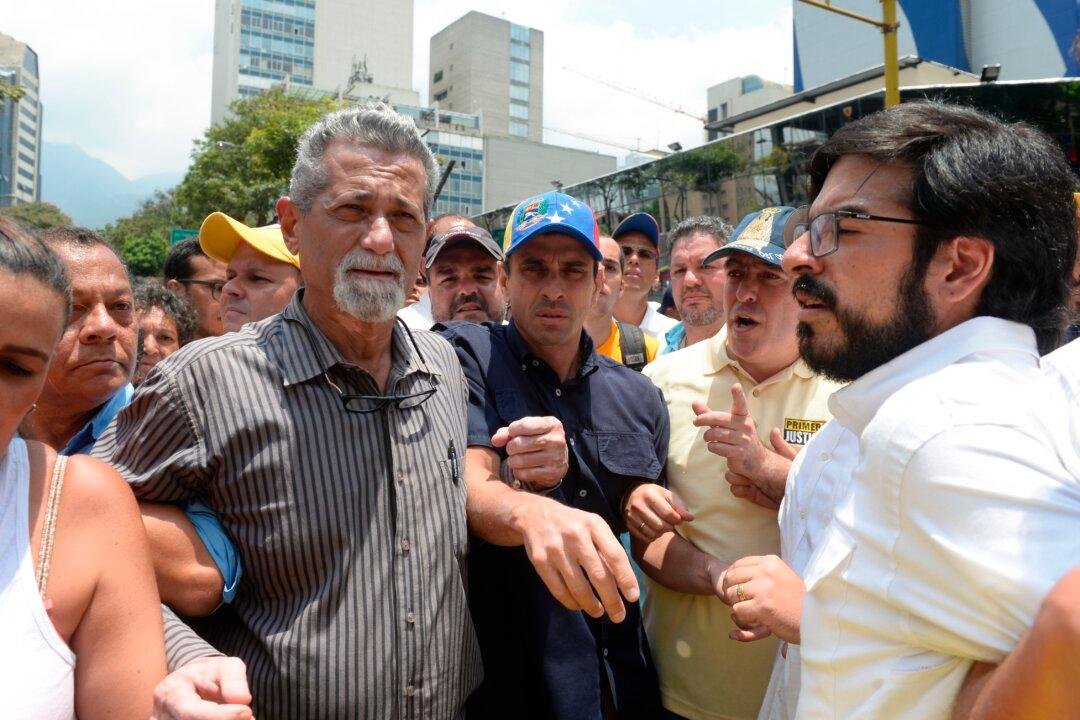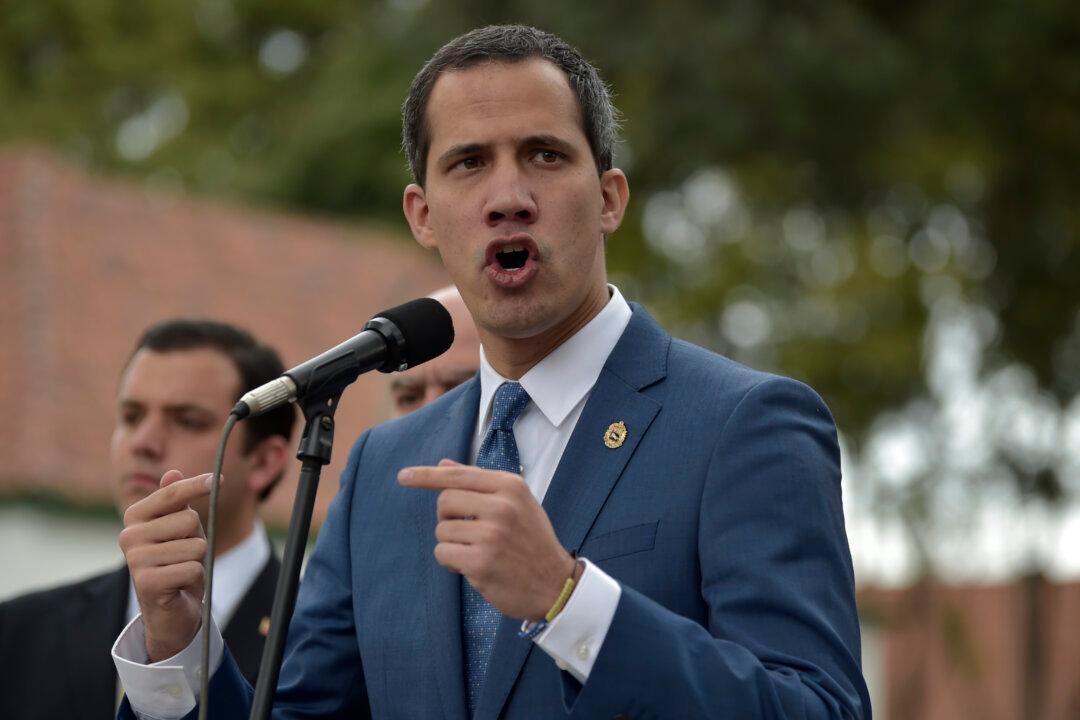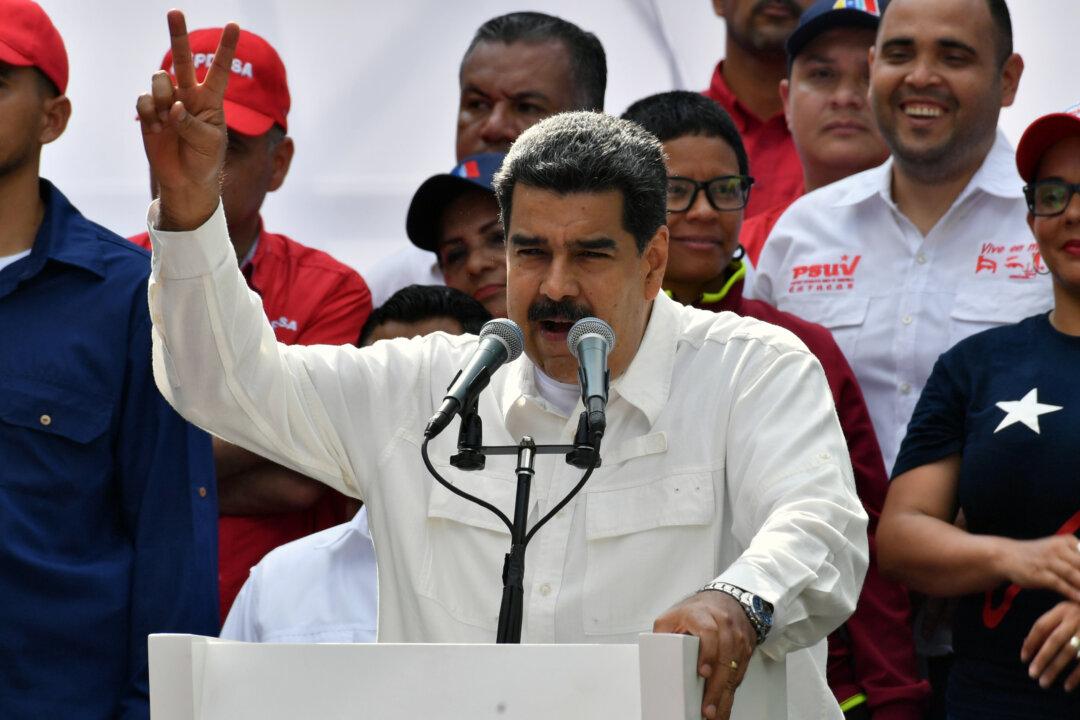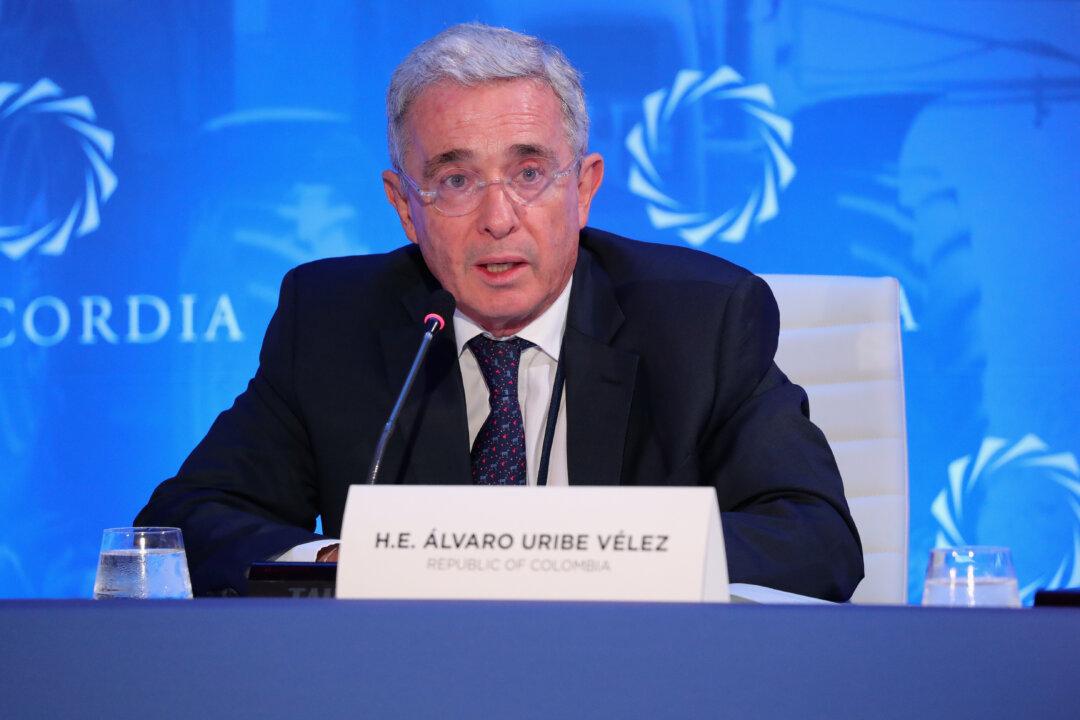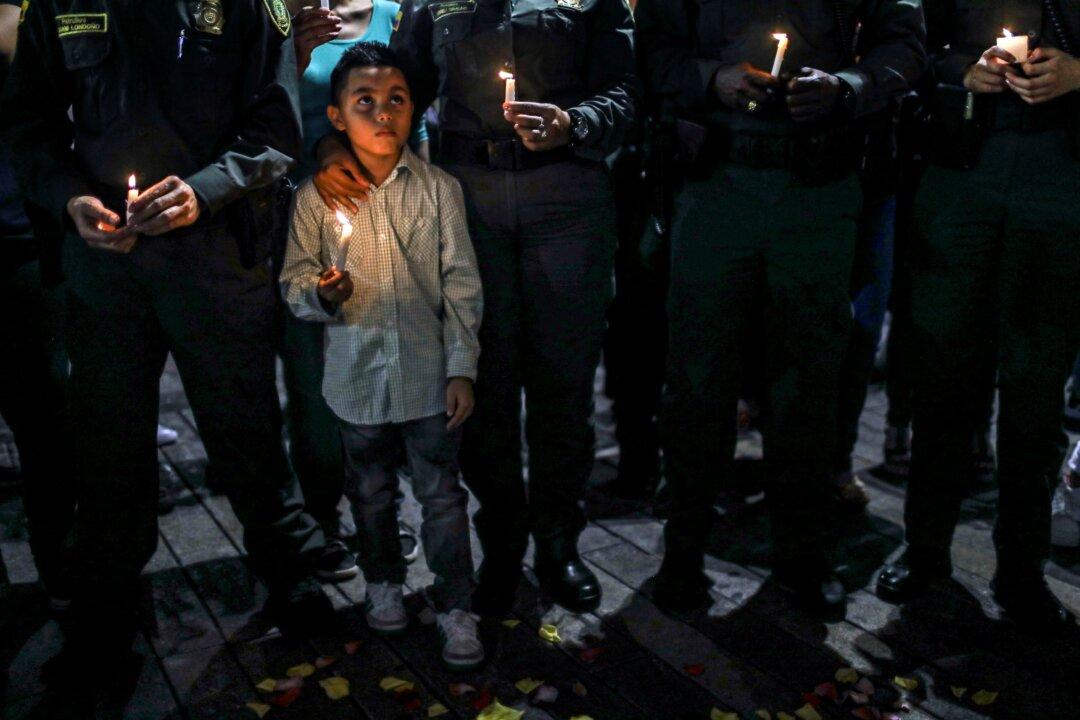BOGOTA, Colombia—The regime of Venezuela’s Nicolás Maduro lashed out at the country’s opposition-run congress this week by prosecuting some of its members for supporting new economic sanctions imposed by the United States.
Three opposition lawmakers were charged by the Supreme Court with treason and other crimes earlier. The pro-government legislature, created by Maduro to strip power from the country’s democratic congress, the National Assembly, also announced it would create a commission to evaluate holding 2020 legislative elections earlier, a move that might allow Maduro to reclaim power over the last democratically elected political institution.
